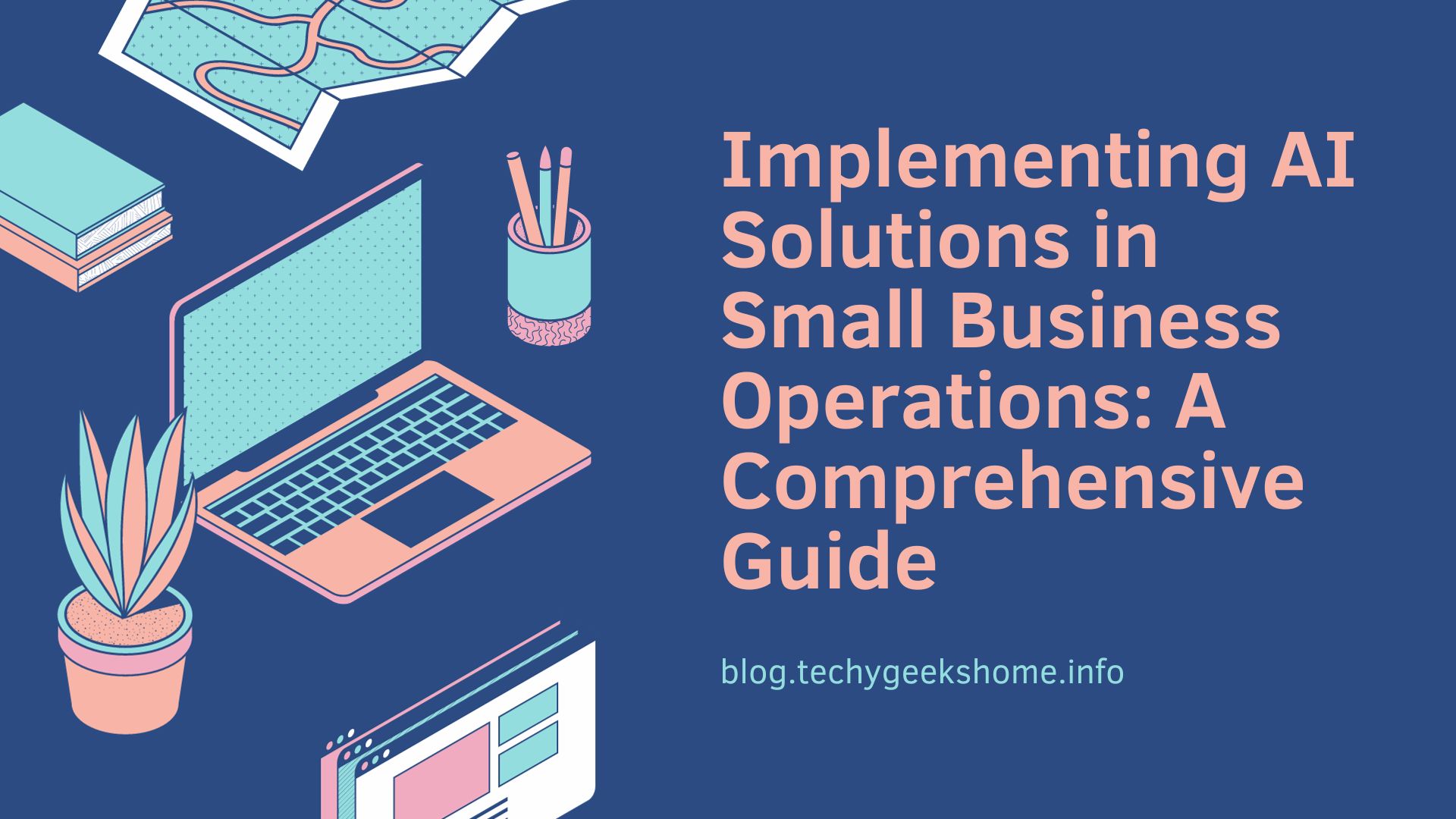Hello, curious entrepreneur! There’s been a lot of buzz about Artificial Intelligence (AI) lately, and it’s not just restricted to Silicon Valley or massive corporations. Small businesses around the globe are finding that AI can offer substantial benefits, streamlining operations and providing insights that were once the realm of big data departments. Wondering how to make this technology work for your business? Let’s dive deeper into the world of AI, breaking down its intricacies and exploring actionable steps for implementation.
Choosing Your AI Tools: Exploring the Market
There’s a vast array of AI tools tailored for diverse business needs. Research tools that align with your specific requirements. Platforms like IBM Watson, Salesforce Einstein, and Google Cloud AI offer various services, from chatbots to analytics, that can be tailored to fit small business models.

Harnessing Project Management Tools: Organizing Your AI Journey
Incorporating AI into your business isn’t just about selecting the right tools; it’s about managing them efficiently. New project management tools become invaluable here. They assist in planning AI integrations, keeping track of progress, ensuring deadlines are met, and helping teams collaborate seamlessly. Whether rolling out an AI-powered marketing campaign or coordinating data collection for machine learning, a solid project management platform can streamline the process, ensuring that every step is executed systematically. Think of it as your navigation system, guiding you through the intricate maze of AI implementation.

Feeding the AI Beast: The Importance of Quality Data
Your AI system’s effectiveness is directly proportional to the quality of data it receives. Regularly update, clean, and manage your data to ensure your AI tools work optimally. Consider integrating CRM systems or data management platforms to keep data organized and accessible.
The Scope of AI for Small Businesses: Opportunities Everywhere
Before diving into tools and tactics, it’s essential to understand where AI can fit in. Areas ripe for AI integration include:
- Customer Service: Chatbots can handle queries round the clock.
- Sales and Marketing: Predict customer behavior and personalize campaigns.
- Inventory Management: Predict stock needs and reduce overhead costs.
- Finance: Forecast financial trends and optimize budgeting.
- HR: Automate the recruitment process and manage employee schedules.
Continuous Learning: Evolve with Your AI
AI implementation is not a one-off task. As your business evolves, your AI will need to adapt. Regularly review the system’s outputs, train it with new data, and adjust parameters to ensure it remains aligned with your business goals.
The Ethical Side of AI: Balancing Tech with Responsibility
While AI can be transformative, it’s essential to prioritize customer trust. Ensure data privacy, maintain transparency in how customer information is used, and stay compliant with data protection regulations.
Deepening Our Understanding: More About AI in Business
Beyond Chatbots: While chatbots are popular, AI’s potential goes beyond. Natural Language Processing (NLP) can analyze customer feedback, and Machine Learning can offer real-time insights into sales patterns.
Personalization at Scale: AI can help businesses tailor experiences for individual customers based on their behaviors and preferences, turning one-time buyers into loyal patrons.
Operational Improvements: Through AI, tasks like invoice processing or order tracking can be automated, leading to faster, error-free operations.
Risk Management: Predict potential business risks based on market analysis and historical data, allowing for proactive strategies.
Skill Augmentation: AI doesn’t replace humans but complements their skills, allowing teams to focus on creative and complex tasks while automation handles the routine.
Steps Forward: Bringing AI into Your Business
- Stay Educated: The world of AI is vast. Consider enrolling in courses or attending workshops to deepen your understanding.
- Seek Expertise: Collaborate with tech consultants or hire specialists to ensure the seamless integration of AI tools.
- Regular Reviews: Schedule monthly or quarterly reviews to assess the impact of AI on your business operations and determine areas of improvement.

In conclusion, integrating AI into a small business is a continuous learning and adaptation journey. It’s about understanding its potential, tailoring its capabilities to your needs, and reaping the benefits of increased efficiency, deeper insights, and enhanced customer experiences. As you embark on this transformative journey, remember the power of AI lies not in its algorithms but in its ability to drive meaningful, impactful change for businesses of all sizes.
Discover more from TechyGeeksHome
Subscribe to get the latest posts sent to your email.

